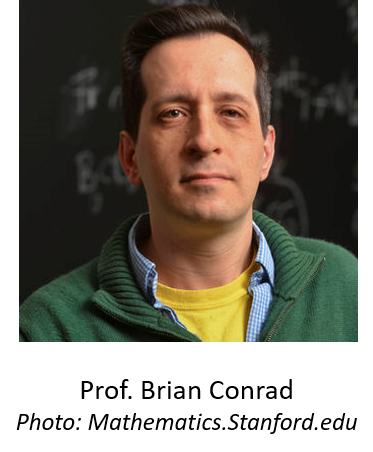From ‘Fuzzy Math’ to New Math to No Math: California’s Equity-Based Curriculum
For well over three decades, American students at all grade levels have been cheated out of an adequate math education. In 1991, Phyllis Schlafly reported on the dismal math scores from the 1990 NAEP tests. Phyllis wrote: “Fewer than one in seven students in the 4th, 8th and 12th grades can do mathematics at or above their grade level, and more than half are two or more grade levels behind, according to the 1990 NAEP Mathematics Assessment.”
 Billions of dollars and multiple math education fads later, the situation has only gotten worse. But whereas the education establishment used to pretend that so-called “fuzzy math” or “new math” would actually result in improved math proficiency, there is scarcely any pretense today on the part of state or federal education departments that schools are actually teaching math and arithmetic. Instead, the emphasis is on diversity, equity, and inclusion, with children learning little more than woke ideology.
Billions of dollars and multiple math education fads later, the situation has only gotten worse. But whereas the education establishment used to pretend that so-called “fuzzy math” or “new math” would actually result in improved math proficiency, there is scarcely any pretense today on the part of state or federal education departments that schools are actually teaching math and arithmetic. Instead, the emphasis is on diversity, equity, and inclusion, with children learning little more than woke ideology.
Since 2021, California has been trying to ram through its latest round of Common Core math standards, which according to numerous mathematics professors and scientists, fail to teach “actual mathematics.” Rather, the standards require teachers to insert “environmental and social justice” into math curricula, and ask them to assign students — as math classwork — tasks that “will solve problems that result in social inequalities.”
The California Board of Education gave final approval to the new standards in July 2023, which it claims “structure the teaching” of math around “big ideas that integrate rather than isolate math concepts, allow students to ‘see themselves’ in curriculum and in math-related careers by making math instruction culturally relevant and empowering” and “instill confidence in learners by dispelling myths about who can and cannot learn math.” Many observers wonder who besides the creators of the frameworks were aware of “myths” that pre-determine who can and cannot learn math.
Open letter from STEM professors
In July 2021, more than 1,240 higher education STEM scholars, professors, industry officials, and others signed an open letter to California Governor Gavin Newsom, State Superintendent Tony Thurmond, the State Board of Education, and the Instructional Quality Commission protesting the revised state math curriculum framework.
The letter read in part:
- The proposed framework would, in effect, de-mathematize math. For all the rhetoric in this framework about equity, social justice, environmental care, and culturally appropriate pedagogy, there is no realistic hope for a more fair, just, equal, and well-stewarded society if our schools uproot long-proven, reliable, and highly effective math methods and instead try to build a mathless Brave New World on a foundation of unsound ideology. A real champion of equity and justice would want all California’s children to learn actual math—as in arithmetic, algebra, geometry, trigonometry, and calculus—not an endless river of new pedagogical fads that effectively distort and displace actual math.
The signatories also objected to the fact that the standards “reject ideas of natural gifts and talents,” thereby discouraging the acceleration of “talented mathematics students.” They pointed out that math “is a discipline whose language is universally accessible with good teaching. The claim that math is not accessible is an insult to the millennia of non-Western mathematicians and erases the contributions of cultures around the world to mathematics as we now know it.”
The letter made the salient point that “infusing mathematics with political rhetoric is alien to mathematics as a discipline, and will do lasting damage—including making math dramatically harder for students whose first language is not English. We believe that all students without exception have natural gifts they can use to learn school mathematics, and therefore all students are harmed by refusing to recognize students’ giftedness....”
Finally, the letter asserted that “this proposed framework must be replaced with one that will truly serve equity and justice by living up to the very moral aspirations this framework rejects.”
It’s worth noting that California’s new woke math curriculum is important because, as Fox News reporter William La Jeuness related to newscaster Harris Faulkner: “As the nation’s largest textbook market, when California enacts a new curriculum, other states and publishers tend to follow. The new math standards encourage teachers not to focus on numbers or memorizing tables, but on social awareness — this in a state where only 33 percent or one third of students are proficient in math.”
A vocal opponent
Stanford University Math Professor and director of undergraduate studies in math, Brian Conrad, has perhaps been the most vocal critic of his state’s new math standards and yet he fully expects this flawed framework to spread nationwide. Conrad read the entire 1,000-page teaching framework and is trying to sound the alarm through an op-ed published in The Atlantic on October 2, as well as through various media appearances.
“When I decided to read every word of California’s 1,000-page proposal to transform math education in public schools,” he began, “I learned that even speculative and unproved ideas can end up as official instructional policy.”
On October 6, he was a guest on Fox & Friends, warning that “these alternative math options which are claimed to be pro-equity, are in fact a complete failure.... And yet this has been popping up in Cambridge, Massachusetts. It’s being proposed in Connecticut and other places, and this doesn’t work.”
Conrad said of the framework: “People should stop thinking that this kind of fantasy is going to actually help.” Instead, he urged a return to conventional math, especially in the early grades, which he believes would “give teachers better motivation. The core material still remains the essential foundation.”
California revised its new standards several times over a long period, allegedly trying to address some of the more egregious problems. But Conrad asserts that the fixes didn’t go far enough. “Sometimes, as I pored over the framework, I could scarcely believe what I was reading. The document cited research that hadn’t been peer-reviewed; justified sweeping generalizations by referencing small, tightly focused studies or even unrelated research; and described some papers as reaching nearly the opposite conclusions from what they actually say.”
 His primary concern is the lack of access to Algebra I in eighth grade, which he says is the standard means of reaching calculus during high school in preparation “for future STEM careers, economics; those types of college degrees.”
His primary concern is the lack of access to Algebra I in eighth grade, which he says is the standard means of reaching calculus during high school in preparation “for future STEM careers, economics; those types of college degrees.”
He also opposes what he calls the “false promises” of alternative math options in high school that will allegedly “lead to certain great careers, but that as designed, will be dead ends.” He adds that the traditional, or conventional, math curriculum provides the proper foundation for all types of careers, including video game design, AI development, and data science. “The ability to do actual data science rests on math skills that have been taught for eons,” he wrote.
“Data literacy would be a better name for the most widely taught high-school data-science classes,” he continued, “which were developed by UCLA’s statistics department and my own university’s Graduate School of Education.... Many parts of the math curriculum can be illustrated with engaging contemporary data-oriented applications. But much as a music-appreciation course won’t teach you how to play a piano, data literacy is not data science.”
When interviewer Brian Kilmeade observed that “only 23 percent of California eighth graders are proficient in math, and close to zero percent are proficient in places like Baltimore,” Conrad argued that giving teachers “better [conventional] materials” could lead to “better motivation” of students and “a huge improvement in academic achievement.”
In other words, much like children only learn to read with difficulty when deprived of the phonics method of reading instruction, they are unlikely to learn math without traditional math instruction.
Delayed adoption
An article in Education Week earlier this year noted that “subject matter frameworks [in California] are revised roughly every eight years, and are dependent on the legislature directing funding to the revision process.” What this tells concerned parents and critics is that once these flawed new standards are in place, nearly a generation of kids will be lost before they can be revised again.
While Education Week failed to note this, the article did acknowledge that “the last year this process was completed for mathematics was 2014.” It lamented the delays in finalizing the new standards as a result of the pushback, quoting Arun Ramanathan, CEO of the California-based nonprofit Pivot Learning, as saying: “The delays in approving the math standards have reached a national level of concern.”
Ramanathan said that, given the delay, “the state’s list of adopted instructional materials for K-8 math might not be available until the 2024-25 school year,” meaning that students have entered the 2023-2024 school year “learning from math materials that are nearly a decade old.” He added that the delay could spill over into upcoming adoptions, including the framework for English language arts and English language development. “It’s a cascading effect,” he said.
For worried parents, delay may not be such a bad thing in this case. Conrad noted in his op-ed that despite the state’s push for equity-based math, it is actually “shunting away” disadvantaged students from advanced math while portraying such as “progress.” He added that “the STEM fields won’t increase their diversity through math classes that contain very little math.”
His conclusion? The students who are most reliant upon public schools are the most harmed when districts embrace policies based on superficial appeals to equity or false promises about future job opportunities. When only the children of families with resources beyond the public schools are gaining preparation for the lucrative degrees and secure jobs of the future, public education is failing in a primary duty.
Want to be notified of new
Education Reporter content?
Your information will NOT be sold or shared and will ONLY be used to notify you of new content.
Click Here
Return to Home Page
